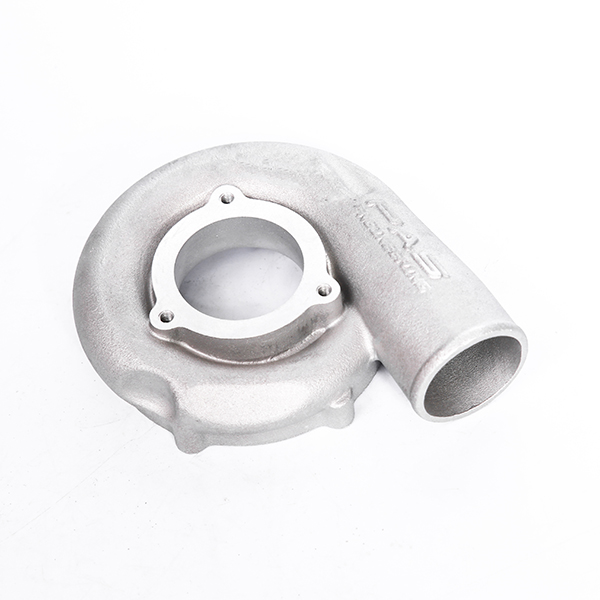Mobile:+86-311-808-126-83
Email:info@ydcastings.com
Exploring the Benefits and Applications of Aluminum Die Casting in Modern Industries
Aluminum Die Casting An Overview of its Advantages and Applications
Aluminum die casting is a manufacturing process that involves the use of molten aluminum to create precise parts and components. This technique is increasingly popular in various industries due to its remarkable advantages including high dimensional accuracy, excellent surface finish, and reduced production costs. In this article, we will explore the benefits of aluminum die casting, its applications, and the factors that contribute to its growing prominence in modern manufacturing.
Understanding Aluminum Die Casting
Die casting itself is a metal casting process characterized by forcing molten metal into a mold cavity under high pressure. This process can be used with various metals, but aluminum die casting is particularly favored for its lightweight, strength, and corrosion resistance. The aluminum is typically heated to a temperature range of about 660°C (1220°F) until it turns into a molten state. This molten aluminum is then injected into a steel mold at high pressure, allowing it to fill intricate designs and achieve high-quality finishes. After cooling, the mold is opened, and the finished part is ejected.
Advantages of Aluminum Die Casting
1. High Precision and Accuracy One of the most significant advantages of aluminum die casting is its ability to produce components with excellent dimensional accuracy. The high-pressure process ensures that molten aluminum fills every corner of the mold, resulting in consistent and intricate designs. This precision is particularly crucial for industries that require tight tolerances.
2. Superior Surface Finish Aluminum die casting produces parts with smooth surfaces that often require minimal machining. This reduces the need for additional surface treatment and can lead to substantial savings in time and costs during production.
3. Lightweight Yet Strong Aluminum is well-known for its lightweight properties, which makes it an ideal choice for various applications where weight savings are critical, such as in the automotive and aerospace industries. Moreover, aluminum die-cast components offer high strength, making them suitable for demanding applications.
4. Cost-Effective Production While the initial cost of creating a die can be high, the long-term benefits realize significant savings. The ability to produce large quantities of parts quickly and efficiently leads to lower per-unit costs, making die casting an economical option for mass production.
aluminum die casting

5. Corrosion Resistance Aluminum naturally develops a protective oxide layer when exposed to moisture, which provides excellent resistance against corrosion. This quality is advantageous for parts used in outdoor and automotive applications.
Applications of Aluminum Die Casting
Aluminum die casting is utilized across a diverse range of industries due to its advantageous properties. Some of the key applications include
- Automotive Industry The automotive sector is one of the largest consumers of aluminum die casting. Components such as engine blocks, transmission housings, and various structural parts benefit from the strength and lightweight nature of aluminum, contributing to fuel efficiency and overall vehicle performance.
- Aerospace Industry With rigorous safety standards and performance requirements, the aerospace industry relies on aluminum die casting for critical components including brackets, housings, and structural parts. The lightweight characteristics of aluminum help reduce aircraft weight, leading to improved fuel economy.
- Consumer Electronics Many consumer electronics, such as smartphone casings and laptop housings, utilize aluminum die casting to provide a sleek and durable finish. The excellent thermal conductivity of aluminum is also beneficial for heat dissipating components.
- Industrial Equipment In industrial applications, die-cast aluminum parts are used in machine housings, pumps, and frames, where durability and strength are essential for operational efficiency.
Conclusion
Aluminum die casting presents a myriad of advantages that cater to the needs of diverse industries. The combination of high precision, lightweight properties, superior surface finishes, and cost-effectiveness solidifies its position as a preferred manufacturing process for producing complex components. As manufacturing continues to evolve toward efficiency and sustainability, the demand for aluminum die casting is likely to grow, paving the way for innovative applications and advancements in production techniques. Whether for automotive, aerospace, or consumer goods, aluminum die casting remains a cornerstone of modern manufacturing practices.
-
Understanding Metal Casting TechniquesNewsApr.02,2025
-
Understanding Exhaust Manifolds for Enhanced Engine PerformanceNewsApr.02,2025
-
The World of Metal FabricationNewsApr.02,2025
-
Key Components for Pump and Turbo EfficiencyNewsApr.02,2025
-
Essential Tools for Automotive Maintenance and RepairNewsApr.02,2025
-
Durable Valve Components for Effective Water ManagementNewsApr.02,2025











